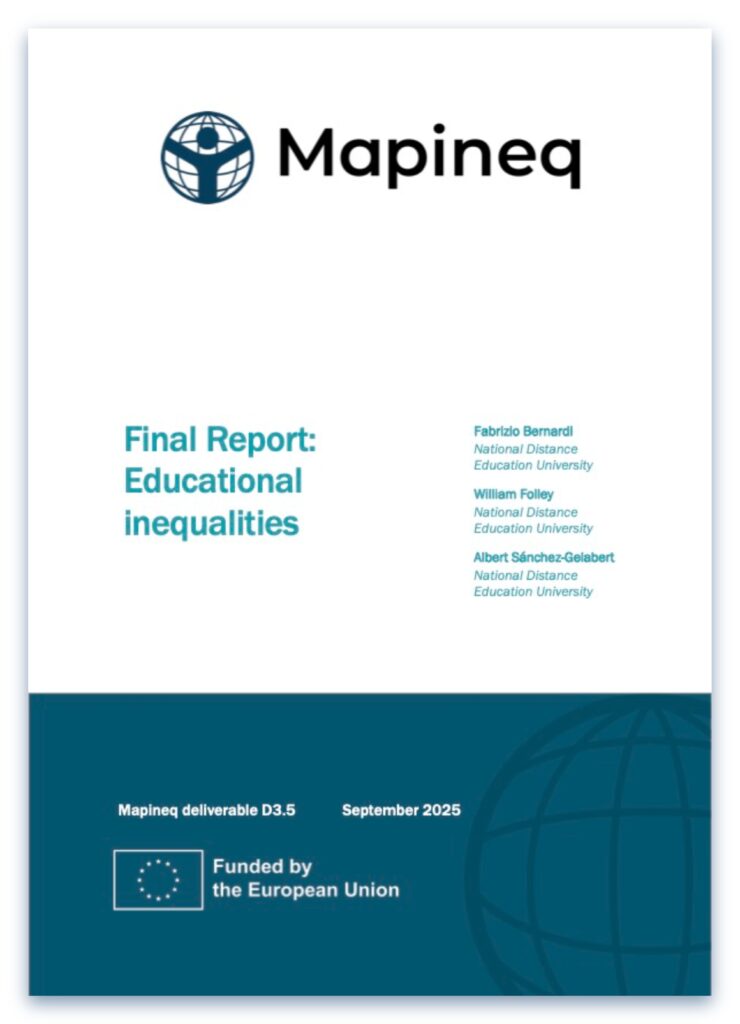Final Report: Educational Inequalities
This report summarises the main findings from Work Package 3 (WP3) of the Mapineq project, focusing on the persistence and transformation of educational inequalities across Europe. It combines comparative data analysis and original studies on compensatory and boosting advantage, environmental risks, and educational expansion. Results show that inequalities remain substantial and are shaped by social origin, family dynamics, and territorial context. While expansion of education has led to modest reductions in inequality, this trend is not uniform and is often driven by declining outcomes among the advantaged. Moreover, environmental hazards such as heat and pollution disproportionately affect low-SES students, adding a new layer to the reproduction of inequality. The report concludes that educational inequalities are deeply entrenched and shaped by dynamic interactions between families and their social and environmental contexts.
By Fabrizio Bernardi, William Folley & Albert Sánchez-Gelabert.

Parental education continues to play a central role in shaping educational attainment across Europe, with persistent social gradients despite overall progress in access to tertiary education.

Families with greater educational and economic resources adopt compensatory and boosting strategies that reinforce intergenerational advantage, particularly when responding to academic challenges or environmental stressors.

The equalising potential of educational expansion appears limited: recent reductions in inequality have been modest and are often linked to declining outcomes among advantaged groups rather than substantive improvements for the disadvantaged.

